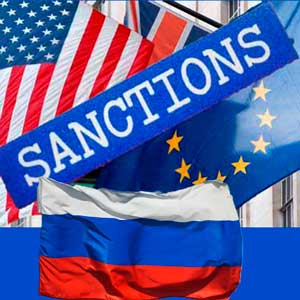Experts Assess Impact of EU Sanctions on Russian Airports and Seaports
On February 24, as part of its 16th package of sanctions against RUSSIA, the European Union added six airports to the sanctions list: Vnukovo ( Moscow ), Zhukovsky ( Moscow region ), Koltsovo (Yekaterinburg), Begishevo (Naberezhnye Chelny), Perm and Pskov. it also included the seaports of Ust-Luga, Primorsk, Novorossiysk, Makhachkala, Astrakhan, where, among other things, cargo is handledoil . They are not included in the list of blocking sanctions, but in a separate EU list, which prohibits EU persons from transactions with them, but does not imply, for example, freezing of assets.
The ban on transactions with sanctioned airports itself contains a number of exceptions: in particular, the ban will not apply to flights necessary to attend meetings aimed at settling the military conflict in Ukraine , to emergency operations involving takeoff, landing or transit through Russia, to the supply and transportation of pharmaceutical, medical, agricultural and food products to EU countries.
An RBC source at one of the Russian airports draws attention to the fact that the sanctions lists do not include legal entities, but rather the names of airports and ports, which makes the implementation of sanctions difficult. "Foreign contractors work not with the name of the airport or port, but with specific legal entities. When Aeroflot was added to the sanctions lists, everything was specified, right down to the aircraft tail numbers. Today, this looks more like a declaration of intent than real restrictions," he said.
Friendly Avia Support CEO Oleksandr Lanetsky believes that the likelihood of negative consequences for airports is minimal. “Everything will depend on whether the European Union will “pressure” companies in third countries and threaten them with regressive sanctions. If this does happen, there will be a risk that airlines flying to Russia may stop flying to sanctioned airports. The supply of airport equipment from Asian countries may also be complicated. But at the moment, not a single large company from third countries has yet fallen under secondary sanctions,” says Lanetsky.
International sanctions expert George Voloshin also believes that the impact on airports and seaports is insignificant. "If these airports and ports were to fall under US sanctions , significant problems would arise in interbank transactions between ship operators and port authorities. Although local difficulties are not excluded in the case of European sanctions, if large banks from third countries are involved on the part of ship owners, whose global policy requires compliance with European sanctions," he explains.
Voloshin recalls that European airlines have not flown to Russia since February 2022 by decision of the Federal Air Transport Agency, which was adopted in response to the ban on Russian operators using EU airspace. The sanctions will not apply to foreign airports to which carriers fly from Russian sanctioned airports, since EU sanctions are not applied as secondary sanctions. "Sanctioned airports will no longer be able to work directly with counterparties from the European Union. Most likely, there have been no such business contacts in the last three years, or they were insignificant: the supply of goods and technologies for Russian airports has long been limited by EXPORT bans," he points out.
According to the expert, the new sanctions should not affect ship calls to Russian sea ports. "Consequences should arise for ships calling at ports managed by European companies or with a significant proportion of the crew with EU citizenship. Currently, almost all foreign ships visiting Russian ports are managed by companies from third countries, including the UAE, CHINA (Hong Kong) and small island states," concludes Voloshin.
Anna Barabash, CEO of Enterprise Legal Solutions, also believes that the new EU sanctions will not have a significant impact on ports and airports. “The few foreign airlines that continue to operate flights to Russia are unlikely to significantly reduce their presence, since they are already operating flights in defiance of the EU. In my opinion, restrictions on the supply of equipment, components and parts will not bring anything new, since everything necessary has long been purchased using parallel import schemes. In general, this package of sanctions against air and sea ports is a pure formality; there is nothing new in them,” she concludes. At the same time, Barabash does not rule out that some airlines, given the availability of alternative airports in Moscow, will prefer to switch to non-sanctioned airports.

